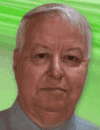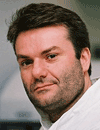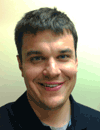|
Registration | Session Sponsors |
| |
|
Liquid Handling & Robotics |
| |
08:30 |  | Keynote Presentation Future Directions in Lab Automation Technologies
Joe Liscouski, Executive Director, Institute for Laboratory Automation Inc, United States of America
Where can we go and what do we need to get there? Laboratory technology development is progressing faster than the market can absorb and make use of it. It is time to ask some basic questions and evaluate how we can use what’s available. |
|
09:15 | Laboratory Informatics; Climbing the Slope of Enlightenment?
John Trigg, Director, PhaseFour Informatics, United Kingdom
The concept of the e-Laboratory, or integrated laboratory gets ever closer, particularly with electronic laboratory notebooks replacing their paper counterparts. However, a number of challenges remain in order to fully exploit the potential that digital technologies present to assisting and extending the course of science knowledge. |
10:00 |  Technology Spotlight: Technology Spotlight:
Better Drug Discovery with Acoustic Transfer
Gino Segre, Product Manager, Labcyte
Labcyte’s acoustically driven liquid dispense technology is well known to offer a number of benefits to researchers. New findings published in PLoS show that Labcyte Echo liquid handlers can also profoundly improve drug discovery strategy.
|
10:15 | Coffee Break and Networking in the Exhibition Hall |
10:45 | ESPRIT: Library Based Construct Screening for Soluble Expression of Challenging Proteins and their Complexes
Darren Hart, Team Leader/Director, European Molecular Biology Laboratory, France
The ESPRIT technology uses picking & arraying robots to identify rare soluble expression constructs from random libraries of up to 28,000 size-selected fragments of a single target gene. The resulting purifiable proteins can be used in structural biology, vaccinology, screening & functional studies. |
11:30 | DMSO Based Chemistry for Rapid Identification of Structure Activity Relationships and Lead Optimization
Alberto Bresciani, Head of Screening Technologies, IRBM Science Park SpA, Italy
The presentation will describe an easy and fast approach for the exploration of classes and sub-classes of molecules. DMSO based chemistry eliminates the need for downstream processes and thus enables an efficient two step synthesis/assay procedure. |
12:30 | Lunch Break and Networking in Exhibition Hall |
13:30 | Poster Viewing Session |
14:15 | Implementing Compound Management Strategies and Technologies to Insure High Impact HTS Results
Peter Hodder, Senior Director, Scripps Florida, United States of America
The quality and organization of compound library screening samples have a profound effect on HTS outcomes. Compound management strategies will be presented, as well as the results from a quantitative assessment of a screening sample’s solubility, purity and color on the quality HTS assay results. |
|
Lab Automation in Biomedical Research | Session Sponsors |
| |
15:00 |  | Keynote Presentation Developing New Diagnostic Tests Using Biobank Samples, Robotic Sample Preparation and Mass Spectrometry
Rainer Cramer, Professor, University of Reading, United Kingdom
In this talk, the potential of mass spectrometric profiling of easily collectable clinical samples such as body fluids will be discussed with a view to its application in clinical diagnostics. |
|
15:45 | Coffee Break and Networking in the Exhibition Hall |
16:30 | Liquid Handling Solutions for Biochemical and Cell-based Assays in an Academic Environment
Kamyar Hadian, Group Leader, Helmholtz Zentrum München, Germany
Screening in the academic environment has highly emerged within the last years. Accordingly, we have installed two fully automated liquid handling systems, one for biochemical and one for cell-based screening (containing a High-Content Screening module and sterile housing). |
|
Benchmarking Liquid Handling Automation |
| |
17:15 | Benchmark of Seven Calibration Technologies for Non-Contact Micro Liquid Handling Devices
Dong Liang, R&D Engineer, IMTEK, University of Freiburg, Germany
A comprehensive benchmark of seven different calibration technologies with quantitative performance comparison on the same liquid aliquot in the range from pl to µl is presented. This work provides the best overview of almost all low liquid volume calibration technologies. |
18:00 | Universal Dispensing Performance Parameters for a Differentiated Evaluation of Accuracy and Precision
Stefan Bammesberger, R&D Engineer, IMTEK, University of Freiburg, Germany
An objective, comparable and differentiated measurement plan is proposed by defining derivatives of dispensing accuracy and precision which serve as meaningful and universally applicable performance parameters. |
18:45 | Close of Day One |








